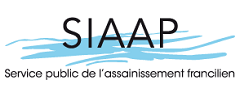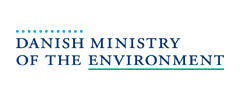European Water Solidarity Week
WECF speaks at Water Week in Strasbourg - Lack of funding for water and sanitation in rural areas in Eastern Europe
07.11.2005 |Anna Tsviekova, MAMA-86
Romanian delegate Emilia Steluta at the entrance of the conference 'palais' in Strasbourg
During week from 15 till 21 October 2005 the European Solidarity Week for Water (ESWW) took place in Strasbourg. It was organised by SEE as a preparation to Mexico World Water Forum (WWF). The objectives of the ESWW were:
- To draft European recommendations for the Fourth WWF that will be held in Mexico City in March 2006 with the following theme “Local Action for Global Challenges”;
- To intensify exchange and solidarity among the various partners involved in water management across Europe,
- To sensitize the broad public and the elected officials to the water issues in Europe and to the investments required for water management (human and financial resources).
Financing water and sanitation in ECCA region
During the Water Solidarity Week in Strasbourg, hosted by the SEE (Solidarite Eau Europe), a two day work-conference took place on financing water and santiation in Europe. Speakers included Sascha Gabizon, Director of WECF, Paul Covenden, EBRD and Peter Borkey, OECD.
The conclusion of the workshop was that there is almost no financing available for rural areas of Eastern Europe.
Worse, in Eastern Europe we are seeing disconnections. We see that in Kirgizstan some 10% of the population, mainly in rural small cities, has lost access to centralized drinking water between 2000 and 2003.
Estimates by OECD for Caucasus countries show that to maintain and improve existing infrastructure in the cities, the state budget would have to go from spending 1% of GNP on Water and Sanitation to 3 – 5% (in Georgia, where the situation is particularly severe). This includes maintenance, operations and capital costs (investments) for improving the infrastructure. The problem with this is that even with such an increase, 30%-50% of the population living in the rural areas have no water and sanitation.

Sascha Gabizon, WECF, and Peter Boerkey, OECD, speakers in the workshop on Financing Water and Sanitation in Eastern-Europe and EECCA
In WECF projects in rural areas we find that it is here that there is the greatest need. New borns fall ill from too high nitrates and patogens from wells polluted with fecal bacteria. School girls get blather infections from going to the school’s outside pit-latrines by –20 degrees in winter. These are the poorest part of the population. They should be our priority if we want to achieve the Millenium Development Goals! We need to show the political will to spend a larger share of our state budgets on water and sanitation! It is essential for the development of our countries, for the political stability and it will help reduce spending on health.
The official reports of EECCA countries to the MDG summit report that almost all people have access to safe water and sanitation. OECD argues that this is NOT the case.
Right to Water Workshop - Strasbourg
The program of the ESWW included the "Right to Water" workshop (15-16 October).
Focusing on Europe, the Right to Water (RtW) workshop discussed the human right to water – the individual right to sufficient, safe, acceptable, physically accessible and affordable water for personal and domestic uses – as identified by General Comment No. 15 of UN Committee on Economic, Social and Cultural Rights in 2002.
The implementation of the RtW implies a number of preconditions:
- identification of the authority responsible for the implementation of RtW at local level,
- the recognition of individual obligations accompanying the RtW :
- not to waste,
- not to pollute,
- to equitably contribute towards the costs of implementing;
- accessing the necessary financial resources through the
socially sustainable use of tariffs, cross-subsidies, public subsidies,
social assistance and other means.
Six case studies (Ukraine, Bulgaria, Romania, Kosovo, Hungary and European Roma) highlighted a number of relevant issues were presented for discussion. Anna Tsvietkova was a co-speaker presented the case on RtW and access to water in Ukraine.
Field Trips to Water Works
SEE organised 4 field trips on 17 of October.
During the field trips the participants visited the areas of renaturalization, the water treatment plant and plant-soil filter in Upper Rhine river territory.
Water and Civil Society Days
The plenary sessions and workshops of “Water and civil society” on 18-19 October.
The Water and Civil Society Section included 4 workshops:
1) Flood protection and risk management,
2) Implementation of EU Water Directive in CEE,
3) Access to water and sanitation for all;
4) Decentralized funding of water management in small towns and rural areas of CEE.
Among the listed recommendations worked out during these workshops there are :
- The need to develop eco-social approaches for the water resources management (water for life is water for people and environment),
- Solidarity among rich and poor ( cross subsidies),
- West and East for Water (International Water solidarity),
- Decentralization of water management,
- Core role of local authorities,
- Responsibility sharing among all stakeholders,
- Financing for local actions, initiatives, for education;
- Public informing and participation in water management at relevant levels,
- Increasing efficiency of Public Water Supply utilities
- Control and transparency of private sector involvement.
The results of the workshops were presented at the Conference of Council of Europe and will be the contribution into the European region recommendations, which will be delivered to the Mexico WWF.
For more information contact Tsvietkova Anna
Download the article by Anna Tsvetkova on the Workshop on Right to Water.


































